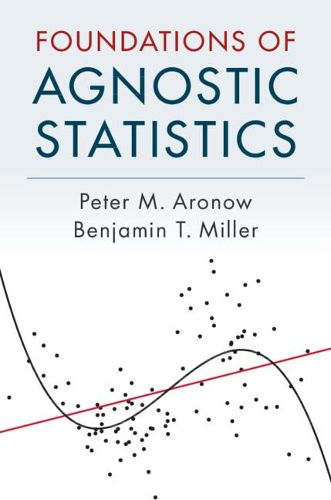Readings Newsletter
Become a Readings Member to make your shopping experience even easier.
Sign in or sign up for free!
You’re not far away from qualifying for FREE standard shipping within Australia
You’ve qualified for FREE standard shipping within Australia
The cart is loading…






Reflecting a sea change in how empirical research has been conducted over the past three decades, Foundations of Agnostic Statistics presents an innovative treatment of modern statistical theory for the social and health sciences. This book develops the fundamentals of what the authors call agnostic statistics, which considers what can be learned about the world without assuming that there exists a simple generative model that can be known to be true. Aronow and Miller provide the foundations for statistical inference for researchers unwilling to make assumptions beyond what they or their audience would find credible. Building from first principles, the book covers topics including estimation theory, regression, maximum likelihood, missing data, and causal inference. Using these principles, readers will be able to formally articulate their targets of inquiry, distinguish substantive assumptions from statistical assumptions, and ultimately engage in cutting-edge quantitative empirical research that contributes to human knowledge.
$9.00 standard shipping within Australia
FREE standard shipping within Australia for orders over $100.00
Express & International shipping calculated at checkout
Reflecting a sea change in how empirical research has been conducted over the past three decades, Foundations of Agnostic Statistics presents an innovative treatment of modern statistical theory for the social and health sciences. This book develops the fundamentals of what the authors call agnostic statistics, which considers what can be learned about the world without assuming that there exists a simple generative model that can be known to be true. Aronow and Miller provide the foundations for statistical inference for researchers unwilling to make assumptions beyond what they or their audience would find credible. Building from first principles, the book covers topics including estimation theory, regression, maximum likelihood, missing data, and causal inference. Using these principles, readers will be able to formally articulate their targets of inquiry, distinguish substantive assumptions from statistical assumptions, and ultimately engage in cutting-edge quantitative empirical research that contributes to human knowledge.